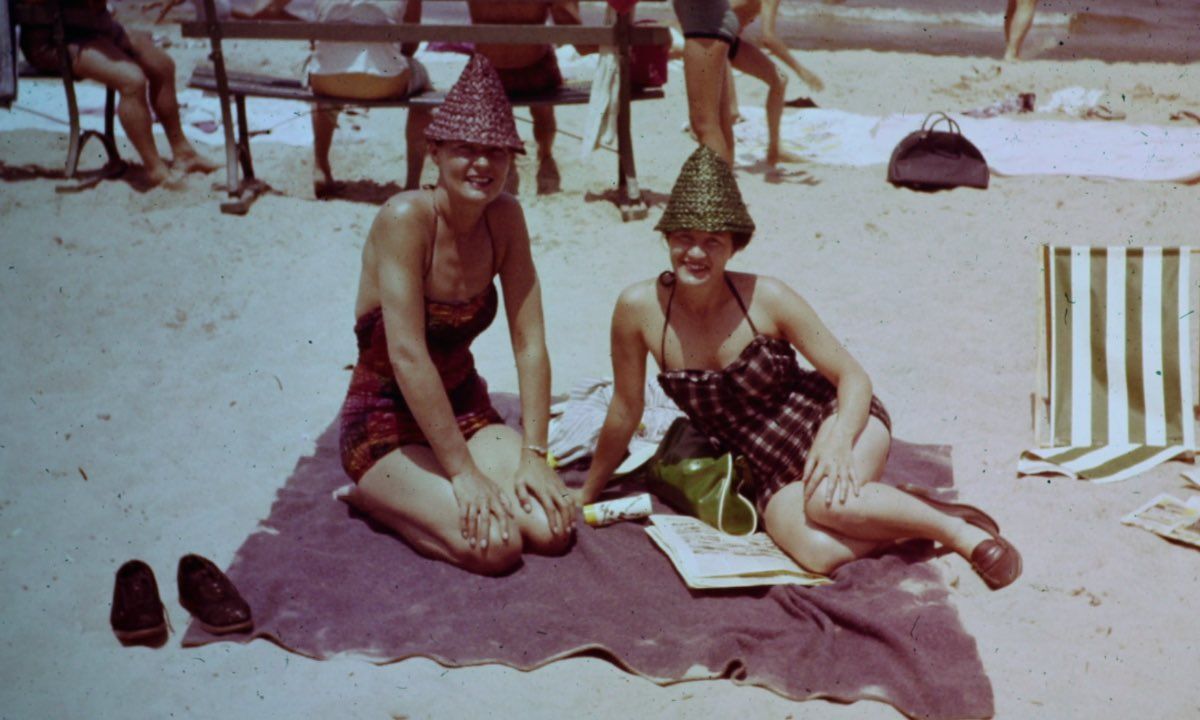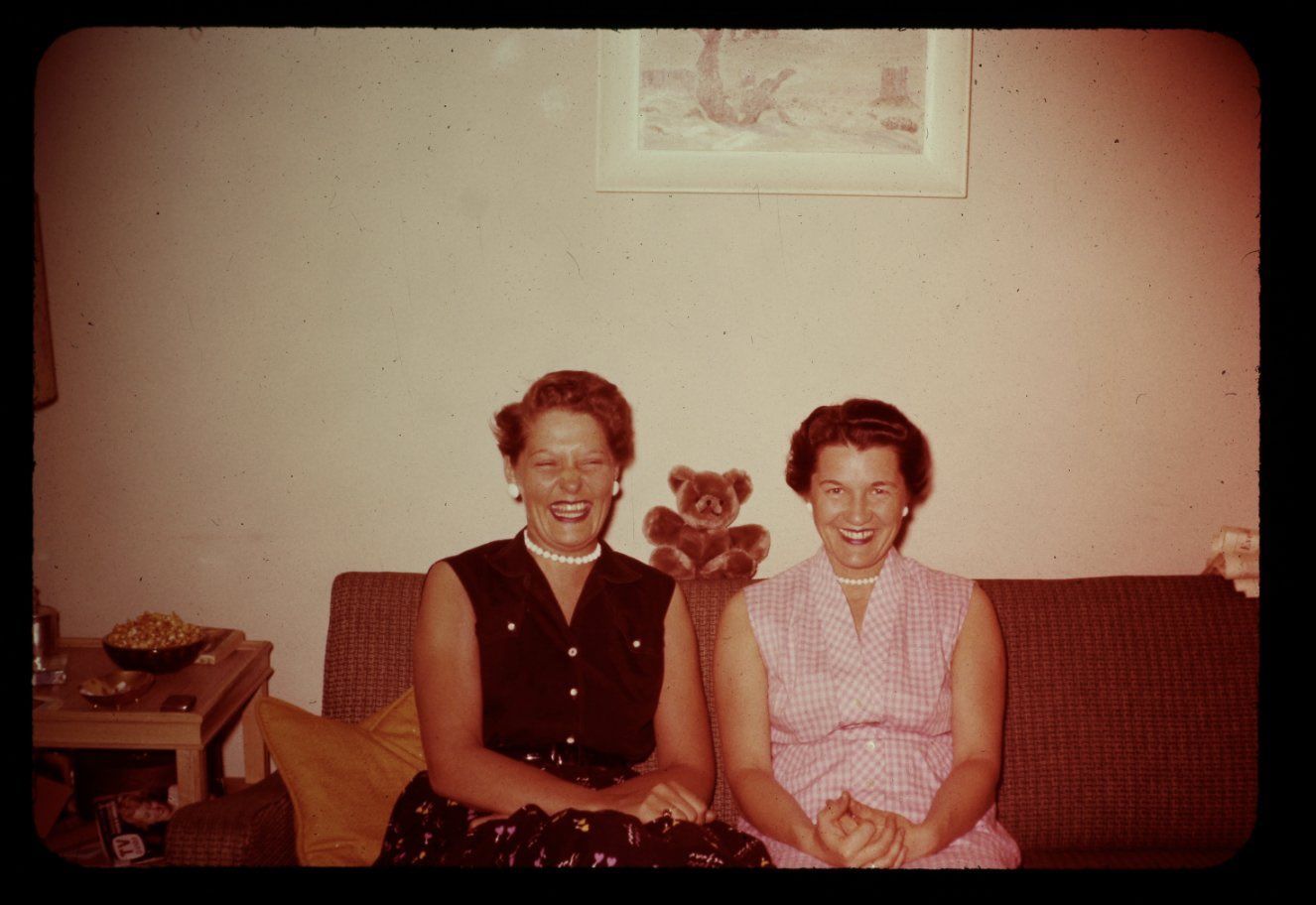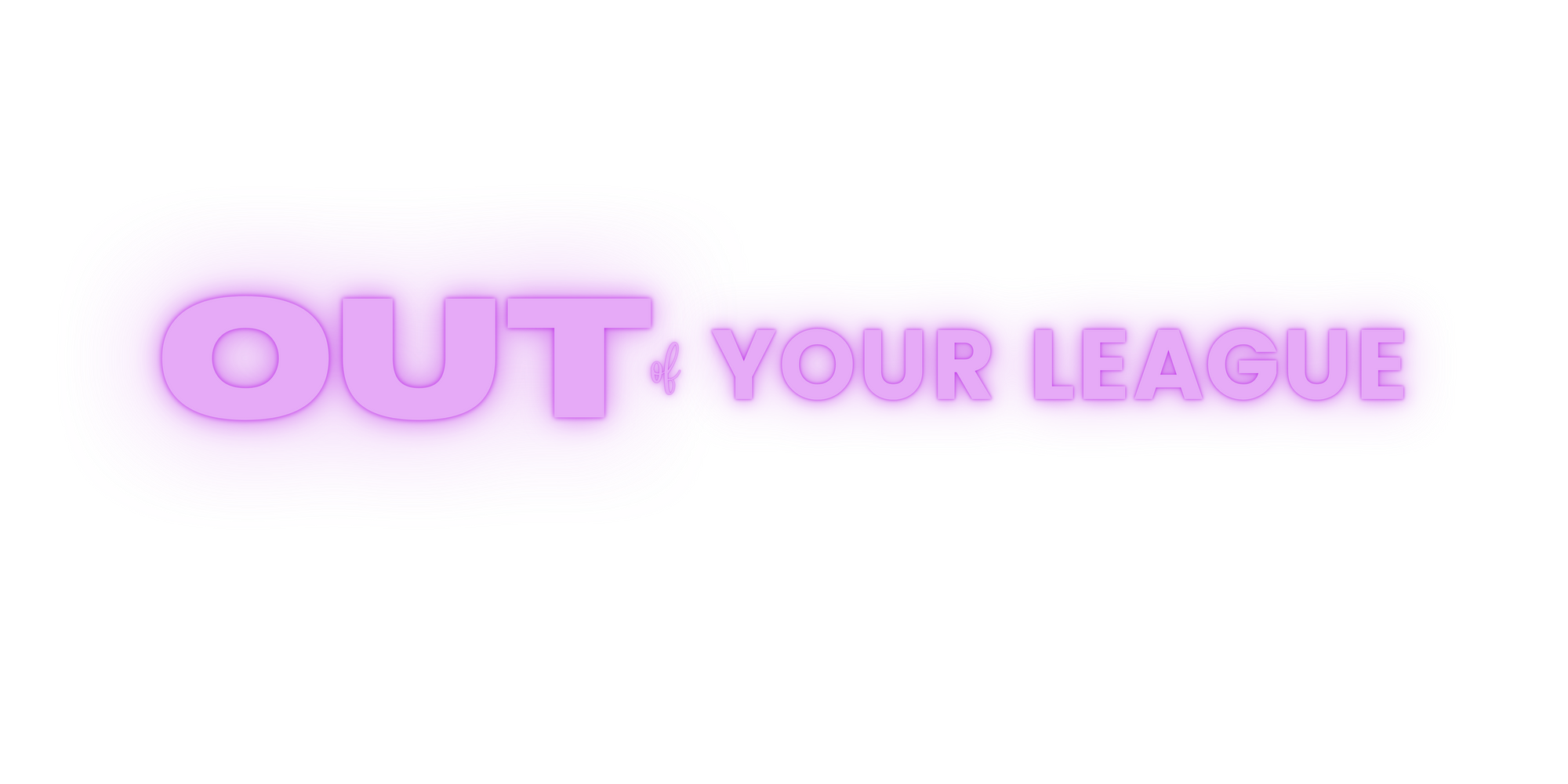'Circus of Books' and 'A Secret Love' deserved better
plus! more white women in sports media is not progress

Hi, friends! I want to apologize, but more so, explain: subscribers were expecting a newsletter in their inboxes on Wednesday but it never came. What gives? Well, I was preparing piece of in-depth original reporting for you and stayed up until past midnight the night before working on it and consulting with an editor friend on it. Ultimately, we decided it wasn’t ready. It needs more reporting in order to fully and thoroughly write the story that was emerging. I’d rather do something well than send it out too soon and, at that point, I didn’t have time to write something else for you since I’d been working on the other piece for nearly a week. I hope you’ll forgive me, and trust me — I’m still on the story.
If you’re not subscribed yet, you can do so here for $5/month or $55/year:
Now, onto today’s newsletter.

A tale of two (disappointing) queer documentaries
I’m always thrilled for more queer content and there has been a bunch on Netflix lately. There were two documentaries I was especially excited about and I ended up being disappointed by both of them, for similar reasons. While reviews of both tended to be glowing, reactions from queer folks I spoke to tended to mirror mine.
The first, Circus of Books, is presumably about an iconic gay porn store in Los Angeles and the family that owned it. The trailer makes the film appear to be different than what it actually was, playing up the porn angle and downplaying the tension in the film, which is the struggle of the straight couple who owned it — the wife, Karen, especially — to reconcile what they do for a living with the personal beliefs they hold.
The second film is even more disappointing for me than the first, though I actually liked Circus of Books less overall. That’s because I’ve been waiting for A Secret Love for over two years. I discovered the film in late 2017, when I began reporting what would become my longform feature about queer women who played in the All-American Girls Baseball League. I interviewed Pat, one of the subjects of the film, about her relationship with Terry, who played in the AAGPBL (you can also read about the reporting process of my story in a piece I wrote for LitHub). The documentary is about their 70-year relationship, which they hid from everyone — including their families — for 65 years.
Both films were made by family members of the subjects, and I feel like that’s where their biggest failures came from. The filmmakers were too close to their subjects and, as a result, they brought blindspots or biases to the process. In Circus of Books, it was an unwillingness to push Karen on her cognitive dissonance — that she profited from and made a living because of this gay community, while simultaneously erasing their gayness from the way she thought about what she did and holding onto harmful, homophobic beliefs about the community that financially supported her family.
We see her grapple with her son’s coming out and working hard to undo the messages she internalized from her Conservative synagogue about queerness and, eventually, become a PFLAG ambassador. That journey is important, for sure. But it doesn’t fully account for the discomfort she continues to express around her business and the people who patronize it.
Circus of Books was a pillar of gay LA for nearly three decades. It was a gathering place, a cruising place, a place to be in community with other people like yourself. It was a place severely impacted by the AIDS crisis. But we get the sense that Circus of Books meant more to its patrons and employees than it did to its owners, a straight couple who always kept themselves at arm’s length from the community they served. Even 30 years in, even after coming to accept and love her own gay son, Karen still refuses to really look at her business and its clientele. In doing so, she others and dehumanizes them, despite being entrenched in the community for decades and claiming to love her employees.
It’s not clear whether Karen’s daughter, who made the film, was unable or unwilling to push her mother on these things; instead, she lets her off easy and the movie is worse off for it. Reviews call it “heartwarming” and “uplifting,” but I fail to find anything heartwarming about a film that focuses on a woman who harbors incredibly problematic beliefs about a community that she profits from and which she never fully reckons or makes amends for. Honestly, fuck you, Karen! Being a PFLAG ambassador and loving your gay son does not relieve you of the effects of your homophobia!
A Secret Love fails in similar ways, though the harms of its subjects’ homophobia are more subtle. The film was made by Terry’s grand-nephew, and Terry’s family’s point-of-view dominates the movie. The central tension in the film centers around Terry’s family, who lives in Canda, wanting Terry and Pat to move into assisted living — ideally closer to them. We hear one of Terry’s nieces lament that Pat is “keeping Terry” from them; they claim they love Pat, but their interactions with her are strained, despite her being in Terry’s life since before all of them were born. Pat herself seems guarded around Terry’s family. We are told that when Pat finally came out to her only brother he didn’t handle it well, but that loose end is never tied up — her family is not in the film but it’s not clear whether that’s because they don’t talk to her or because they’ve passed away.

What feels missing from both these films about queer people is queerness. There are interviews with former employees and patrons of Circus of Books and a short exploration of what the store meant to LA’s gay community and these are the strongest points in the film. When it gets personal, including when it features the gay son of the owners, he is presented in a stark room. We do not get a sense of what his gay community looks like, what his gay life looks like. He is devoid of the context of his queerness, aside from it being named and it being a traumatic revelation for his mother. We are told that the filmmaker, the couple’s daughter, was surrounded by gay artists when she was growing up, but it’s unclear if she is queer herself. The queer gaze is glaringly absent from this film.
Similarly, a lot of context for why Terry and Pat might be hesitant to leave Chicago, where they have lived for decades and where they found a chosen queer family, is missing from A Secret Love. It’s less likely that Pat is keeping Terry from her family, as is suggested by family members in the film, and more that they are hesitant to return somewhere they have no community, to a family it took them more than 60 years to come out to (the family’s response was that “it doesn’t matter” that Terry and Pat are gay, erasing their entire identities in one well-meaning sentence). We are never given the chance to develop the requisite compassion for Pat. While Ryan Murphy, who is gay, is listed as a producer, the film overall feels like it was made by a straight person telling a queer story.
"For much of the 20th century, families with same-sex partners in long-term, loving relationships were partitioned or put in emotional boxes," Murphy told Salon. "As long as their truth was never acknowledged or named, they were still allowed to be present and to take part. It was a literal erasure of queer love." That is absolutely true, and it’s something the film fails to fully explore, nor does it look at this context beyond Terry and Pat’s situation. Terry’s fear that she would be disowned if she comes out is voiced, but her family members never listen to why she felt that way, they just dismiss it with reassurances. We don’t dive into the impact of having to hide this relationship from their loved ones for over six decades. And it’s clear that there remains tension between Pat and Terry’s family, despite everyone’s denials of what comes through clearly on the screen.

The story of two women who have been in love for 70 years, and who felt they had to hide that love from a world that wouldn’t accept it, should have been an incredibly moving film. When it focuses on telling that story, it is. But I didn’t come away feeling what I expected to, and I think a lot of that had to do with the POV the story was told from — that of Terry’s family, the ones who “don’t care” that she’s gay, including one who said they were “living in sin” because they weren’t married. But that tension is not explored, and the family is presented as nothing but supportive — probably because it’s the family that made the movie. I can’t help but feel like Terry and Pat deserved better.
I want these stories to keep being told and I am grateful for more content about our communities, about our elders, about our history. I’m hesitant to be critical of these films, especially when I have seen nothing but gushing reviews for both of them. But I can’t help but feel frustrated at what feels like a flattening of the context and community queer people exist within, and the straightening of the gaze through which our stories are told. "It has been extremely gratifying to see how these LGBTQ themes clearly resonate for a wide range of audiences,” Murphy told Salon. And maybe that’s the problem — that we’re too worried whether a piece of work will resonate with “a wide range of audiences” rather than whether it was made to resonate with the community it’s presumably about.

There are more white women in sports journalism, but that’s not progress
NBCSports Washington probably felt pretty proud of themselves when they dropped a clip from their new podcast, In the Loop, featuring an all-woman lineup. The fact that it’s 2020 and women are still struggling to get jobs in sports media is infuriating, and an all-woman sports show is still a rarity.
But the network didn’t get the response it was likely hoping for when the clip went online. There were no cookies being handed out for progress. That’s because someone looked at this panel of faces and didn’t see anything wrong with it.
“Diversity” does not mean “white women,” but all-too-often, that’s how the mandate is interpreted. Four women who are slightly different shades of blonde do not constitute a diversity of experience, nor do they accurately represent the population of the DMV area, which is 54% people of color (Washington, D.C. itself is 47% Black and 56% POC). The fact that no one stopped to question whether there should be women of color on this show is problematic but unsurprising.
White women have benefitted from diversity initiatives since the inception of Affirmative Action programs. In fact, white women have benefitted the most from Affirmative Action. Not only that, white people tend to hire other white people, and sports media is still overwhelmingly white and male. The 2018 TIDES Associated Press Sports Editors Racial and Gender Report Card found that 85% of sports editors were white and 90% of sports editors were men. The Women’s Media Center issued their 2017 Status of Women in the U.S. Media report that included no specific numbers for women of color in sports media because the numbers were so low that there was no meaningful data.
It’s definitely a lack of racially diverse leadership that led to this snafu. But the entirety of the blame cannot be laid at the feet of the people in charge. It’s time for white women to do our parts, too, even if it means turning down job opportunities. Similarly to men who have committed to not being on any more “manels” (all-male panels), white women need to commit to refusing to be on all-white panels.
We can do that by asking who else will be on the panel with us and recommending some great women of color who could join the lineup. If the participants have already been selected and they are all white, the best course of action may be to politely decline the opportunity, explain why, and send the names of three women of color who could do it instead.
“The responsibility to help better the landscape of sports media lies not only on the shoulders of the white, straight, male editors. It is also crucial for white women in the industry to speak up and amplify the voices of further marginalized women,” Shakeia Taylor and Shireen Ahmed wrote at The Shadow League in 2018. “Surely, we have not yet seen enough solidarity, discussions and passing of the proverbial mic. But once advised to be more proactive, there is no room for white women to feel wounded or attacked if it is suggested that they step up their game – or that they start playing.”
Is it hard to turn down job opportunities? Hell yes. But until white women recognize the relative privilege we carry, even in a male-dominated industry like sports, women of color are going to continue to be overlooked and left behind. It’s on us to make sure they climb the ladder as we do.

What I’ve Written This Week
- Queer AA Has Been My Lifeline—Both Before and During the Pandemic, SELF
"Mainstream AA felt queerphobic because, instead of allowing my queerness to be incorporated into the way I worked the program and experienced the world, I was getting the message that my queerness was immaterial or didn’t matter, which is, simply put, erasure. I never experienced outright bigotry or homophobia; what I experienced was more insidious and subtle—I felt as if I was expected to check my queer identity at the door.” - I Got Divorced on a Conference Call Because of Coronavirus, InStyle
"Our physical distance hadn’t actually stopped us from doing the last step of our divorce process together, even if it didn’t happen the way I thought it would. We did it together, from our separate homes. Our mutual presence was indicated by the sound of our voices, through which our emotions registered. And at the end of it all, we didn’t sit down for a cup of coffee or hold hands, but we found a way to connect nonetheless.” - Dear Bill de Blasio, All Jews Are Not the Same, Refinery29
"It’s rarely a good thing when the name of a religious minority is a trending topic; it’s a really bad thing when that religious minority is trending because the mayor of a major U.S. city — the city that is the epicenter of the country’s coronavirus pandemic — sends a tweet implying that Jews are to blame for the spread of the virus.” - Twitter’s Demand the #FireChrisHayes Goes Against the Entire #MeToo Movement, Refinery29
"As Biden attempts to rally women behind him — even promising a woman as his running mate — the allegations against him will continue to garner public attention. Hayes' actions, despite the backlash that ensued, show a clear choice to remain in favor of believing women, no matter the circumstances.”
See you next week!
